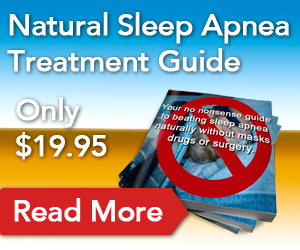Discover if You Have Sleep Apnea
Sleep apnea is a common condition affecting both adults and children. It is more common is adults but does occur in children. Unfortunately however, in both groups it often goes undiagnosed for years. As it is linked to serious health conditions such as heart disease, diabetes, hypertension and stroke this is a big problem. Some of the effects of sleep apnea are reversible, but many of them can be permanent. This is why working out if you have sleep apnea is so vital.
Many of the symptoms of sleep apnea can be quite vague and non-specific. One of the main symptoms may be a tired and irritable partner as you are keeping them awake all night! The symptoms of sleep apnea can include:
- long pauses in breathing during sleep
- snoring or snorting during sleep
- daytime fatigue and sleepiness,
- anxiety,
- irritability,
- memory problems,
- insomnia,
- poor concentration and attention,
- headaches, and
- difficulty performing work duties.
You can also test yourself using what is known as the “Snore Score” which was developed by the American Sleep Apnea Association. It is designed to give you an idea if you are suffering from sleep apnea. Go through and ask yourself each of the following questions. The more “yes” answers you get, the more likely it is that you have obstructive sleep apnea.
- Are you a loud and/or regular snorer?
- Have you ever been observed to gasp or stop breathing during sleep?
- Do you feel tired or groggy upon awakening, or do you awaken with a headache?
- Are you often tired or fatigued during the wake time hours?
- Do you fall asleep sitting, reading, watching TV or driving?
- Do you often have problems with memory or concentration?
In addition to this questionnaire if you are overweight, have a large neck or have high blood pressure (hypertension), then your likelihood of having sleep apnea increases even further.
You can also use a sleep diary to work out if you have sleep apnea. This involves recording how many hours that you slept, whether you felt refreshed on waking, and how often you woke during the night. If you sleep with someone else, they should also make a note of any snorting, choking or gasping noises that you make, and also note how often and how loudly you snore.
If you suspect that you have sleep apnea you should then consult with your physician to arrange further testing. Sleep apnea has so many serious side effects and it is quite easily treated, so that you should not ignore the possibility that you may have it.


